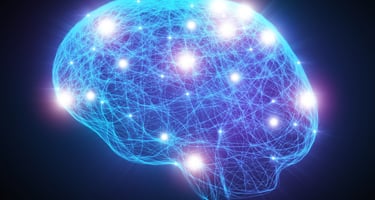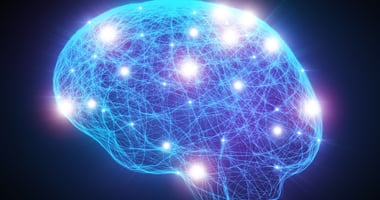Transcranial Direct Current Stimulation May Effectively Treat Negative Schizophrenia Symptoms
 |
“There is an unmet clinical need for the treatment of negative symptoms in schizophrenia,” wrote Leandro da Costa Lane Valiengo, M.D., Ph.D., of the Instituto Nacional de Biomarcadores em Neuropsiquiatria Faculdade de Medicina in São Paulo, Brazil, and colleagues. “[G]iven its acceptability, tolerability, and short treatment protocol, tDCS could be evaluated as an add-on intervention for patients with schizophrenia with negative symptoms in outpatient settings.”
The double-blind, placebo-controlled, randomized trial took place from September 2014 to March 2018 in two São Paulo outpatient clinics. The 100 participants aged 18 to 55 were all diagnosed with schizophrenia using the Portuguese version of DSM-IV, had Positive and Negative Syndrome Scale (PANSS) negative symptom scores of 20 or more, and had stable positive and negative symptoms for four weeks or more. Participants received tDCS in twice-daily, 20-minute sessions over five consecutive days. A sham group went through the same procedure without receiving tDCS. A total of 95 patients completed the trial.
The participants’ symptoms were assessed at baseline, five days, two weeks, four weeks, six weeks, and 12 weeks after the treatment began. After 12 weeks, there was a 4.5-point improvement in the mean PANSS negative symptoms subscale score for patients who received tDCS, compared with a 1.8-point improvement in the sham group. Forty percent of those in the tDCS group achieved treatment response (a 20% or greater improvement in negative symptoms), compared with only 4% in the sham group. The participants had no serious adverse effects, such as acute psychosis or hospitalization, though those who received tDCS reported a burning sensation over the scalp.
“Our findings encourage the use and optimization of this technique in patients with psychotic disorders,” the authors concluded.
For related information, see the American Journal of Psychiatry article “Low-Intensity Transcranial Current Stimulation in Psychiatry.”
(Image: iStock/Henrik5000)
Follow Psychiatric News on Twitter!
And check out the new Psychiatric News Brief on Alexa-enabled devices.
And check out the new Psychiatric News Brief on Alexa-enabled devices.





